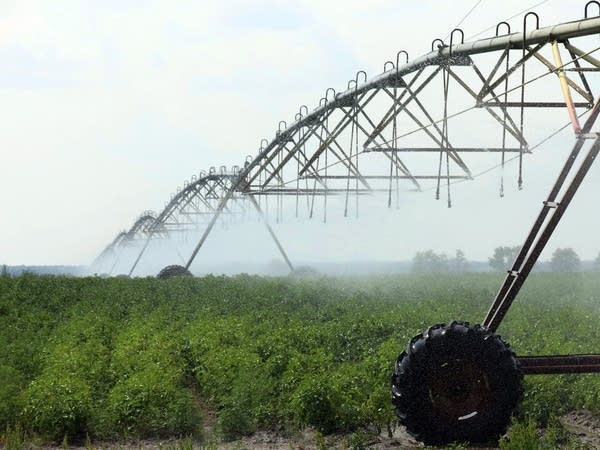DNR readies stiff fines for farmers caught illegally pumping water

An irrigator waters potato plants near Park Rapids on August 1, 2014. A farmer needs a permit to pump more than 10,000 gallons a day or 1 million gallons a year.
Dan Gunderson | MPR News 2014
Go Deeper.
Create an account or log in to save stories.
Like this?
Thanks for liking this story! We have added it to a list of your favorite stories.


